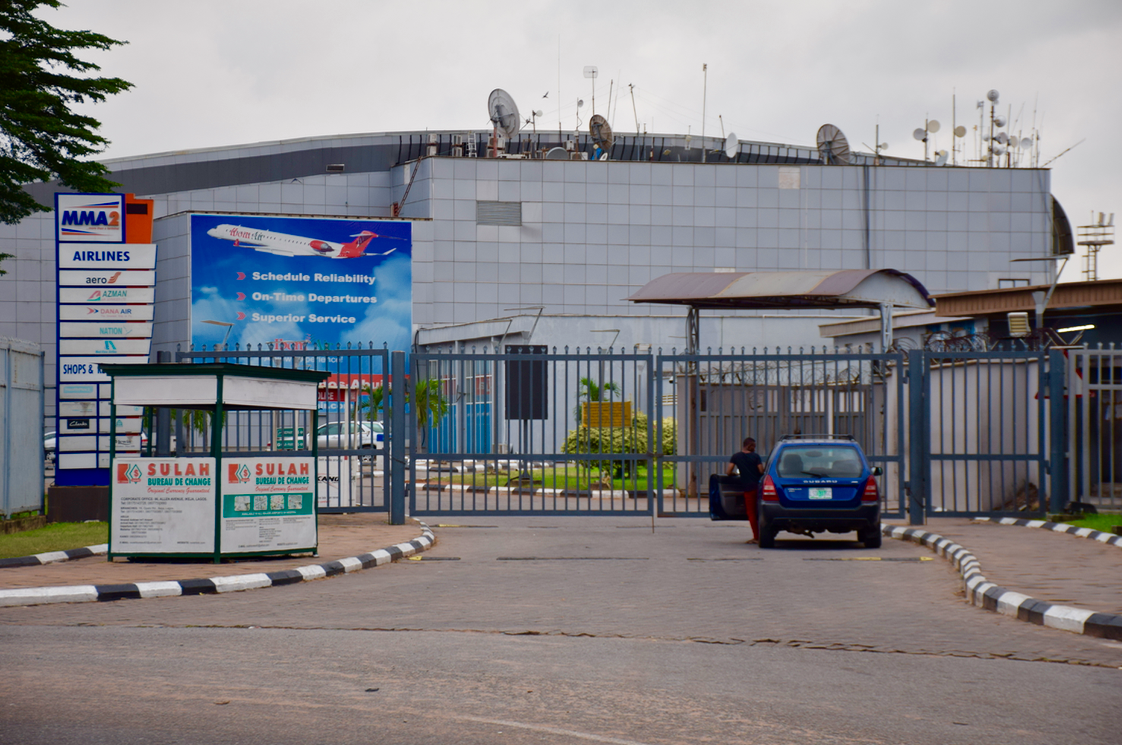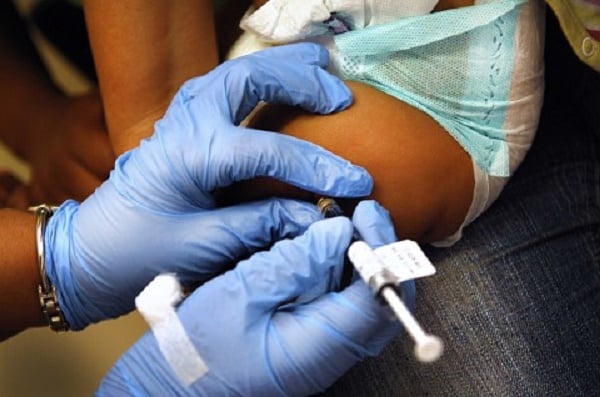BY SENATOR IROEGBU
Rainy season in Nigeria brings a lot of health challenges, which should be a cause for concern as there is a possibility it could impact the spread of COVID-19 pandemic. To this end, if appropriate measures are not put in place to mitigate the potential health hazards, there may emerge a scenario where the temperate regions of Europe and United States would emerge free from the coronavirus by the summer while Nigeria and Africa heads to the opposite direction in the wet weather.
This piece is not a conspiracy theory but to provoke debate and invoke critical thinking and analysis to be sure we are aware of all possible scenarios and prepare on how to deal with any eventuality. It tries to propose the realities that while the countries with temperate climates race towards the ray of hope presented by the warm summer, Nigeria and sub-Saharan Africa can at the same time prepare for any possible challenges that may arise from the colder rainy days.
The Coronavirus (COVID-19) pandemic is currently terrorizing the world but is Africa introspectively thinking of how to best tackle seasons-induced challenges in the immediate, medium and long-term basis? Have African countries bothered to conduct an in-depth research, analysis and simulation of possible scenarios of emerging pandemics/epidemics and how it could affect the continent including seasonal changes. This is because some of these diseases usually have their peak and low periods depending on the prevalent weather and climatic conditions.
Advertisement
But the big question is while the West and temperate regions expect COVID-19 to peak in their regions between April and June with the summer coming to their rescue, what are the expectations of Africans in the tropic region. Currently, the continent is faring well and better than other regions with regards to the spread of the pandemic but all thanks to the clement weather and season. While Europe and United States struggles with the winter and spring enabled flu-like diseases such as Coronavirus, Africa and Nigeria is to an extent shielded by its very hot and humid weather.
Unfortunately, this is about to come to an end as the rainy season (Africa’s winter and spring) is around the corner with its attendant diseases. The rain is coming and no one has made a guess on what this might mean to the likely spread or otherwise of diseases within this period. And when you add this to the high rate of poverty, vulnerable population, poor health system, insecurity and conflicts; it is a recipe for disaster. More alarming is the ticking time-bombs in shanty towns and Internally Displaced Persons (IDPs) Camps across Nigeria where people are living in close quarters and squalid conditions, which could be made worse with the rain and attendant hygiene challenges.
Again, the rain is coming but is anyone thinking out of the box? Have we asked ourselves why Israel, United States, Europe and other countries are evacuating their citizens from Nigeria despite the fact that it currently has one of the lowest rates of infections and deaths associated with the Coronavirus in the world with 232 confirmed cases as at the time of writing? Have one wondered why the World Health Organization (WHO) and United Nations are respectively worried about the possible ballooning of the COVID-19 pandemic in Africa when it is obvious to the deaf and dumb that the continent is one of the least affected? Could it be associated with their doubts about the inaccuracy of the data due to lack of testing capacity and devices? Is it for the fact that the data coming out of Africa might be under-reporting the actual cases or is there something more sinister that is creating this panic and hysteria? Or is it because of the emerging rainy season? These are questions; proactive governments should be providing answers by now before it is too late.
Advertisement
Consequently, if Nigeria and by extension sub-Saharan Africa is to get it right in the ongoing global war against the COVID-19 pandemic, then this is the time. Even though there is no definite and conclusive evidence on this but the pattern of flu and Coronavirus shows that it thrives more in colder climate than the African hot and humid weather but unexplored angle is that the rainy season may alter this calculations.
To this end, if the COVID-19 is to follow the established pattern of the previous flu-like virus infections, the dry season presents the best window of opportunity for Nigerian government, Nigerians and sub-Saharan Africa to crush the pandemic or reduce it to the barest minimum.
But the rain is coming and time is running out.
Unlike America and Euro-Asia continents that have more than three seasons, Nigeria and most African countries have two major ones and three weather periods in a year including rainy and dry seasons as well as Harmattan, which is actually sub-weather under the dry season. In Nigeria the dry season runs from November to April, while rainy season spans the month of April to October of each year. At the dry season, the weather is sub-divided into two: late November to early January is the Harmattan season, which is associated with dry and dusty but cold weather (sometimes harsh), and then the second period is between mid-January to Mid-April associated with hot and humid weather conditions–which is not ideal for the potent spread of COVID-19 and other flu-like diseases.
Advertisement
Now enters the rainy season usually remarkable for its stormy, cold and wet weather conditions, especially at its peak period of July to early October, which is ideal for spreading of flu-like diseases and Coronavirus.
The catch here is that while Europe, US and other temperate regions of the world (if they get their acts together) might be celebrating a Summer-enabled victory over COVID-19, Nigeria and sub-Saharan Africa may be embroiled in it if precautionary measures are not put in place now by ensuring that the disease is either eliminated or reduced to the barest minimum.
On the flip side, the danger is that having been locked down for a while, Europeans and Americans may be in a mad dash for sunbake privileges offered by the summer that there may be the risk of re-infections even if it is minimal. More dangerous however, is the fact that the summer crazy Nigerian elites might travel to these countries with a possibility of being infected and then import Coronavirus back to the continent at the peak of the rainy season with devastating effect.
According to The Guardian, “the warm weather will bring welcome respite to the United Kingdom (UK) – and put pressure on authorities trying to control crowds and gatherings”. It stressed that a key study of the common coronaviruses – HCoV-NL63, HCoV-OC43 and HCoV-229E – was published recently by scientists at University College London and found high rates of coronavirus infections in February, which lowers drastically during the summer. It concluded that other studies have also shown coronaviruses are seasonal in behaviour in temperate climates. The “scientists also believe that warm weather could bring new insights into the virus by showing whether it reacts to the onset of spring” for a possible elimination during the summer proper. It noted that flu epidemics tend to die out as winter ends; and then inquire if it is possible that sunshine could affect the behaviour and spread of COVID-19. It further noted that it is a key question that the epidemiologists will be watching for changes very closely
Advertisement
So why should we be worried? Rainy season in Nigeria heralds a lot of diseases and sicknesses including feverish and flu-like ones like malaria, pneumonia, catarrh and coughs. The Guardian noted that “experts are watching carefully to see if this virus will follow the seasonal pattern of flu, but warned differences may be minor” and it is at this period that the travelling Nigerian elites could be careful not to reimport the disease back to the country at a period the weather could be potent to its spread. Also, the lead researcher, Rob Aldridge, stressed that there could be a continued but lower levels of COVID-19 infection in the summer but warned that “this may reverse in the winter if there is still a large susceptible population at that point”. Aldridge also cautioned that given this is a novel virus as it is not yet known “if a seasonal pattern will hold over the summer given high levels of susceptibility in the population. For this reason, it is crucial that we all act now to follow current health advice.”
Consequently, “act now” that it is ‘summer’ in Nigeria and Sub-Saharan Africa should be the right advice and battle cry for both the authorities and citizens. This is because it could take just a few or single infection to spread to a large population if the enabling conditions are ripe as statistics have shown. Lessons from the USA come in handy here whereas four weeks ago that country had just 227 cases, but it expanded three weeks ago to 1,645 cases; two weeks ago to 13,229 cases; one week ago to 82,100 cases; and has now ballooned to almost 338, 000 cases and 10, 000 deaths . Consequently, “If we let our guards down, in just four weeks, we may regret it. So kindly stay in your house”, warned Dr. Jummai Ahmadu of the Federal Capital Territory (FCT) COVID-19 Task Force Team.
Advertisement
Therefore, it is worth re-emphasizing that Nigeria, Sub-Saharan Africa and tropic regions should literally “make hay while the sun shines”, and act quickly before the rainy days.
According to ICICI Lombard, cold and cough, malaria, dengue, stomach infection, diarrhea, fever, typhoid and pneumonia are some of the diseases, which made it to the top of the list in the rainy season. Also Premium Times in its report entitled: ‘Six common ailments you can avoid during rainy season’, listed malaria, typhoid, common cold/flu, conjunctivitis (popularly referred to as Apollo in Nigeria), cholera and Hepatitis A, to be dominant during the wet period. So the strong advice is not to add the monstrous Coronavirus disease called COVID-19 to the list.
Advertisement
Already, the pandemic which started in late 2019 in Wuhan, China, has caused global economic meltdown with Africa heading to recession if no action is taken to salvage the situation. Nigeria’s case is particularly precarious as the country’s major source of income, which is the crude oil, is at an all-time low except Saudi Arabia and Russia heed the advice of the US President, Donald Trump to bury the hatchet. The world is eagerly awaiting the outcome of Thursday’s meeting.
Recently, Nigeria’s two-time minister of finance, Mrs. Ngozi Okonjo-Iweala, asked Nigeria and other African countries to as a matter of urgency pressure the G7 and G20 for debt-relief in order to deal with the economic and health issues arising from the novel coronavirus. Okonjo-Iweala in a report by TheCable, stressed that if African countries get debt relief, the monies they should pay in servicing debts — which for Nigeria is N2.72 trillion in 2020 budget — can be channeled towards dealing with COVID-19. In a chat with the BBC, the former managing director of the World Bank said Africa needs multiple sources of funds to tackle the global pandemic and its economic effects.
Advertisement
With these consequences in mind, it would be worth reminding the people and government of Nigeria to brace up for the rainy season in order to stem the tide of COVID-19, which is an infectious disease causes by a new Coronavirus introduced to humans for the first time.
For preventive measures, WHO has informed the public to be aware that Coronavirus spreads from person to person mainly through the droplets produced when an infected person speaks, coughs or sneezes. These droplets can land in the mouth or noses of people who are nearby. These droplets are too heavy to travel in the air-they only travel approximately one metre quickly settle on surfaces.
Accordingly, person to person spread mainly through close contacts. This is the reason person to person spread is happening mainly between close contacts.
“The exact time the virus can survive on surfaces is not yet known. So, it is wise to clean surfaces regularly particularly in the vicinity of people infected with COVID-19. Hands touch many surfaces, which can be contaminated with the virus. You should therefore, avoid touching your eyes, nose or mouth, since contaminated hands can transfer the virus from the surface to yourself,” WHO further advised.
More importantly, when coughing or sneezing, cover your mouth and nose with the bend of your elbow or use a disposable tissue. If a tissue is used, discard it immediately into a closed bin. The most effective way to prevent the spread of the new Coronavirus is to clean your hands frequently with an alcohol-based hand rub or soap and water. This will eliminate the virus in your hands. Stay healthy and prevent spread of COVID-19.
As at the moment, it will take a year-long to fully determine the behaviour of the novel Coronavirus and how it interacts with weather and seasons. But for Nigeria and Africa, proactive measures must be in place. A stitch in time saves nine.
Iroegbu is a media practitioner, consultant and security analyst.
Views expressed by contributors are strictly personal and not of TheCable.
Add a comment






